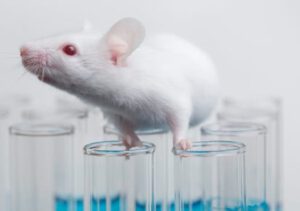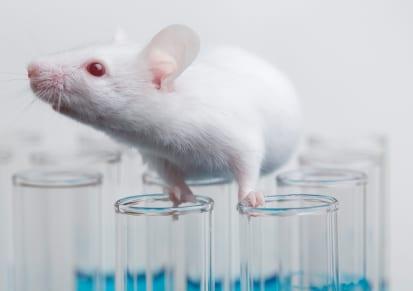
Scientists who are studying mice with a mutation that makes them resistant to obesity even in the face of a high-fat diet may have identified a new way to treat both obesity and diabetes.
Carrying extra weight is known to trigger a state of chronic, low-grade inflammation in the body, which can lead to insulin resistance and, in turn, diabetes. When scientists at the University of Michigan discovered that an inflammatory protein called IKKε seemed to be a key step in this pathway, they theorized that they could protect mice fed a high-fat diet from developing signs of diabetes by genetically engineering them to lack the protein.
Much to the researchers’ surprise, IKKε knockout mice were spared from not only from chronic inflammation and insulin resistance⎯they also stayed relatively slim even when fed a lard-like chow with 45% of its calories from fat. After three months on this diet, normal mice gained 20 grams, while the IKKε-deficient mice gained only 12 grams.
“We’ve studied other genes associated with obesity … but this is the first one we’ve found that, when deleted, stops the animal from gaining weight. The fact that you can disrupt all the effects of a high-fat diet by deleting this one gene in mice is pretty interesting and surprising,” said the study’s senior author, Alan Saltiel, in a statement.
The results were published this week in the journal Cell.
Saltiel’s lab is already working to find drugs that inhibit IKKε and could someday be used to prevent obesity and diabetes in humans. He estimates that new treatments could be available in about a decade, once successful candidate compounds are identified.
But finding a compound that inhibits IKKε isn’t the only obstacle on the road from the lab to the pharmacy. Researchers will also need to confirm that IKKe works in humans the same way it does in mice.
Then there’s the issue of safety. Mice lacking the IKKe gene were protected from obesity and related complications, but they were more susceptible to lethal viral infections than their normal littermates⎯a complication that would need to be carefully evaluated before any attempt to reduce IKKε activity is undertaken in humans.
Image: George Shuklin




